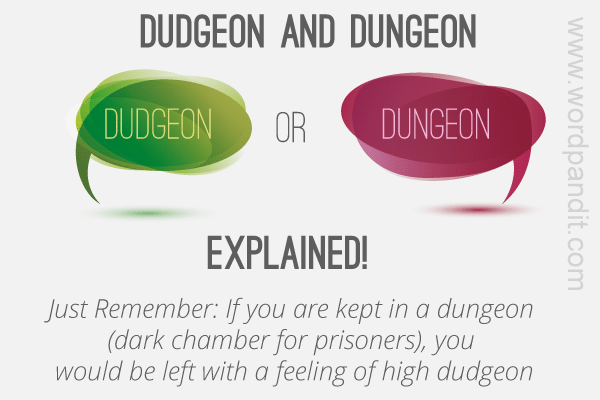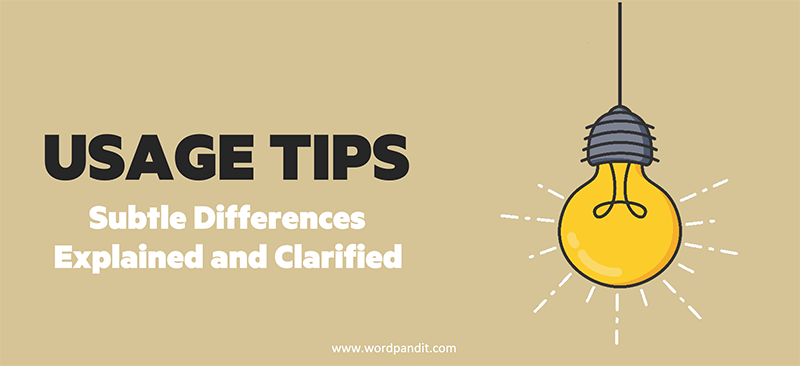 In an archaic sense, Dudgeon is used to refer to a kind of wood used to make knife handles. This usage of the word no longer finds favor, and the words in now used (though rarely) to refer to someone is a bad mood.
In an archaic sense, Dudgeon is used to refer to a kind of wood used to make knife handles. This usage of the word no longer finds favor, and the words in now used (though rarely) to refer to someone is a bad mood.
Dungeons, on the other hand, have all been seen by us (either in real life or on TV.). The word dungeon comes from Middle English word dungeo, used to refer to “a fortress, castle”. Nowadays it is used to refer to dark, often underground chambers or cells used to confine prisoners.
Tool tip to remember the difference:
Just Remember: If you are kept in a dungeon (dark chamber for prisoners), you would be left with a feeling of high dudgeon.
Examples of incorrect uses of Dudgeon and Dungeon:
1. Seeing the state of affairs, she felt dungeon.
2. They decided to visit the dudgeon in the castle in their next vacations.
Examples of correct uses of Dudgeon and Dungeon:
1. He left in high dudgeon.
2. She was able to save the king’s imposter from the dark corners of the dungeon.
A Quick Recap:
Dudgeon means ‘a sullen, angry, or indignant humor’: “Reema walked out of the meeting with high dudgeon.” It is now used only in the phrase ‘high dudgeon’.
Dungeon means a dark, often underground chamber or cell used to confine prisoners, the kinds we get to see in Harry Potter.
After the prince was accidentally locked in the dungeon, he was in a state of high dudgeon and so he complained to the king about how poorly he had been treated.






